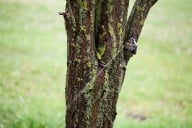You have /5 articles left.
Sign up for a free account or log in.
Now that the National Collegiate Athletic Association has opened the door for Florida State University, Central Michigan University and the University of Utah -- and perhaps others -- hope to walk through it.
The NCAA agreed Tuesday to make an exception to the policy it announced this month limiting participation in its championships for 18 colleges deemed to use "hostile and abusive" Native American names, mascots or other imagery. NCAA officials said Florida State had persuaded them that the Seminole Tribe of Florida supported the institution's use of the Seminole name and of some Seminole icons, including the historical Seminole leader Osceola, who is portrayed at football games by a student riding downfield on a horse with a flaming spear.
In approving Florida State's appeal, association officials made plain that the ruling should not be read as a wholesale change of heart in its policies. The decision “applies to the unique relationship Florida State University has with the Seminole Tribe of Florida,” said Bernard Franklin, the NCAA's vice president for membership and governance.
A majority of the other institutions on the NCAA's list use names like "Indians" or "Braves," and it's hard to see which local tribes they could seek support from to claim an exemption under the NCAA policy.
But officials at several other institutions whose teams bear the names of particular tribes were clearly heartened by the NCAA's shift on Florida State -- though a bit perplexed by the association's apparent disregard of information the institutions made earlier documenting their ties to the tribes.
Steve Smith, a spokesman for Central Michigan, said the institution planned to file an appeal to keep its Chippewa nickname by early next week. He noted that the Saginaw Chippewa Indian Tribe had issued several proclamations in the past endorsing the university's use of the name and that "they are encouraging us to file an appeal." Smith noted that Central Michigan had abandoned its use of an Indian head logo and of a "C" with a spear through it in 1989, to satisfy the tribe's concern that it not use imagery that was "stereotypical" or "derogatory."
What's odd, Smith said, is that Central Michigan had described the university's close relationship with the Chippewa tribe and the tribe's support for the use of the name in a self-study Central Michigan submitted as part of a review process the NCAA conducted of 33 institutions over the last year. "We wonder whether they ever read that original document," since they seemed not to take the information in it into account in compiling its original list of 18 wrongdoers, Smith said.
The NCAA's ruling on Florida State, he added, "gives us hope they will see our case in a similar light."
Utah, which names its teams the Utes, has asked the governing council of the Ute Tribe, which reconvenes next week, for a letter of support endorsing the university's appeal of its inclusion on the NCAA's wanted list, says Coralie A. Adler, the director of public relations. Adler said in an e-mail message that the Ute tribe had endorsed the university's use of the name several times in the past, and that "we believe our chances for an exemption should be good in light of the restraint and respectful way in which we use the Ute name."
The University of North Dakota's president told local reporters Thursday that it planned to appeal, and that the NCAA's ruling in the Florida State case is heartening. "We think that can only go well for us because we, too, have the support of a tribe in the state," Kupchella told the Grand Forks Herald. But the newspaper noted that while the Spirit Lake Sioux tribe has endorsed the university's use of the Fighting Sioux name, other tribes in North Dakota have opposed it.
Alice Smith, a spokeswoman for Mississippi College, whose teams go by the name Choctaws, said Thursday that its officials were "formulating a response" to the NCAA policy, and that "our relationship with the tribe has been very good." Smith noted that the college stopped using its "Chief Choc"mascot in February, during the NCAA's review process, "because the NCAA regulations would most probably identify the mascot as offensive. While no one has ever told us that they are offended by the mascot, we do not wish to offend anyone and thus we are abiding by the NCAA regulations."









